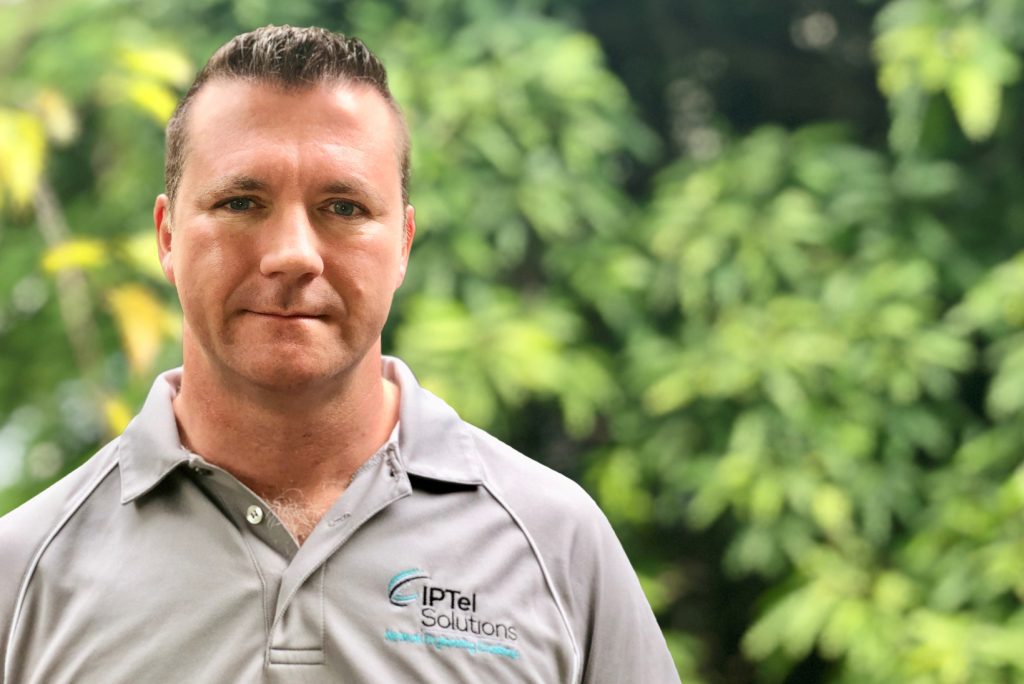October 4, 2023
An expanding ecosystem of Cisco partners are accelerating adoption of managed services, motivated by increased customer demand for specialisation and the pursuit of recurring revenue growth.
Such a significant shift in approach has resulted in the vendor’s traditional base of value-added resellers (VAR) and system integrators (SI) migrating to managed service provider (MSP) models at pace across Australia and New Zealand (A/NZ).
“We’ve seen this for many years in that service providers have always been a big engine room for Cisco when it comes to managed services,” observed Rodney Hamill, Managing Director of Partner, Routes To Market and SMB Sales across A/NZ at Cisco.
“We’re continuing to progress well with Optus, Telstra and our large service providers and that will remain. But now it’s not just our service providers and telcos making that shift, we’re seeing a big change in our traditional partners.”

According to Hamill, future channel success is now dependent on the ability to not only embrace annuity streams but commit to building out expert capabilities across core technology segments.
Even though this market transition started many years ago on both sides of the Tasman – this is not a firing of the starting gun in that sense – the message highlights an evolving outsourcing approach from end-users.
“Managed services aren’t about replacing IT departments in our customers, rather augmenting and providing the specialised skills to fill gaps,” Hamill explained. “This is not like the old outsourcing nightmares of before, this is about providing specific offerings and services based on customer requirements.”
Within this context, Hamill said customers are now dividing up IT environments in favour of specialised partners delivering tailored solutions and services, irrespective of the technology.
“One partner manages the network, one runs the applications and another takes care of cloud,” he explained.
“Customers are making that decision and if you think of this in the context of attracting staff and retaining talent, managed services is a quick way to access those skills. They might be running a slimmed down IT department so will require partner expertise in certain areas and will make a decision based on their own capability.”
In a direct message to the ecosystem, Hamill outlined the path forward for partners seeking to capitalise on an evolving managed services opportunity:
Starting the managed services process
In assessing the Cisco channel across A/NZ, Hamill defined an MSP as having more than 50% of revenue coming from a managed services offering. For those still operating below that bracket, they remain classified as a VAR.
“Customer acquisition remains a big challenge for partners,” Hamill acknowledged. “But managed services will continue to thrive and we’re seeing solid growth in this area as more partners look to drive more recurring revenue offers.”
The shift to managed services represents a significant change in commercial approach compared to the traditional models adopted by VARs and SIs. No longer is a transactional sale enough to win business with a lifecycle mindset now required to maintain customer relationships in the long-term.
“This represents an entirely different sales motion,” Hamill explained. “Partners are not doing pure resell in this scenario and are asking customers to take a leap of faith.
“Managed services is based on customers trusting the capabilities of partners and what they can deliver so in that sense, this becomes a more intimate sell. And it’s a good sell as partners seek to drive towards building more recurring revenue and annuity streams.”
Hamill was quick to acknowledge the significant difference between customer opportunity and partner reality however – “managed services is not something that can be switched on overnight”.
One such example is IPTel Solutions, a Brisbane-based network specialist that recently transitioned to a managed services model aligned to the Cisco portfolio, reaching gold partner status in the process.
“This definitely represents a different sales motion,” shared Mark McSherry, Director of IPTel Solutions.
“Managed services is more focused on finding a particular pain point for customers rather than advocating a mass replacement of their internal IT staff. Our approach is focused on augmenting customer environments and providing the skill sets that are missing.”
With a deep heritage in enterprise networking and wireless, IPTel Solutions started the shift to managed services in late 2022 with support from Cisco Powered Services – a program designed to enhance recurring revenue and partner specialisation levels.
“Cisco provided a strong framework to follow through a guideline book which made the process easy to understand,” McSherry said. “This forced a methodical approach in terms of actually developing a practice, which does take time, in addition to audits and specialisations.”
McSherry also noted the difference in approach between professional services and managed services as the business evolved from offering 24/7 support to providing a proactive monitoring offering. This was achieved through a combination of deploying LogicMonitor – a cloud-based infrastructure monitoring platform – and internally retraining employees.
“We rolled out LogicMonitor to use on the front-end which allowed us to manage and monitor customer networks,” McSherry added.
“There is a big difference between reactive support when a customer signs you up so you log in and check on something, compared to being proactive and actually monitoring the environment. This means we can now automatically raise tickets and inform customers in advance which represents a big shift in approach.”
Specific to the up-skilling of staff, an overhauled business model has paved the way for IPTel Solutions to install more processes and procedures to facilitate this refreshed proactive approach.
“It’s a substantial shift but allows us to create deeper and longer connections with our customers,” McSherry noted.
Setting the specialisation wheels in motion
In kick-starting the managed services transition, IPTel Solutions also secured new Cisco specialisations in the solution areas of Meraki, Secure Access and Full-Stack Observability, in addition to spinning up SDA Fabric capabilities.
“We’re a specialised partner and this was about demonstrating our skills to the market,” McSherry said.

Armed with new Cisco specialisations, IPTel Solutions built an application dependency monitoring offering to help organisations monitor mission-critical applications.
Delivered as a managed service, the solution is designed to offer a “critical visualisation” of internal and external networks, supported by instant troubleshooting and enhanced visibility.
The technology underneath is powered by ThousandEyes – a network intelligence vendor acquired by Cisco in 2020 – and deployed in combination with a unique services value-add from IPTel Solutions.
“It’s not just the configuration of that product but also the insights and experience that we bring in understanding what the product is telling us,” McSherry shared. “This is our unique wrapper as well as automatic ticket creation when it falls out of certain parameters.
“Under the surface this is ThousandEyes but our whole value-add is taking that base product and adding our own expertise around it.”
Echoing McSherry’s observations, Hamill highlighted the value of maximising Cisco Powered Services to accelerate specialisation and managed services growth – irrespective of partner size or technology focus.
“We’re helping partners build out this service which provides customers with extra assurance,” he said. “They know the services being consumed from partners have been inspected, validated and audited by Cisco and that process is helping increase confidence levels during the buying decision process.”
Specific to products, Hamill cited the productisation of Umbrella – Cisco’s cloud-delivered enterprise network security – as an example of the vendor’s portfolio evolving aligned to managed services offerings. The same also applies to Catalyst Center, a network management and automation offering.
“We’re seeing emerging and traditional products being adopted as managed services,” he detailed. “Again, it’s the customers that continue to dictate what type of managed services they want which is driving a change in terms of increased partner-to-partner collaboration.”
Rise of ecosystem collaboration
The domino effect of the channel embracing managed services and product specialisation is a significant rise in ecosystem collaboration, chiefly in the form of partner-to-partner engagement.
For many years, this was viewed as dangerous territory for a vendor to explore – the idea of bringing highly competitive partners to the table in the spirit of customer success was considered wishful thinking at best.
But in 2023, a sizeable pendulum swing in end-user outsourcing investment is changing the rules of engagement within the ecosystem.
“Once upon a time partners probably would have competed in different areas but we’re now seeing a lot more collaboration,” Hamill observed. “It’s the customer dictating this because they continue to slice up their IT environments and seek specialised partners on wireless, networks, cyber security and other areas of focus.”
Referencing IPTel Solutions as a case in point, Hamill said customers are going deeper due to the criticality of the services required. As a result, contract deliverables and service level agreements (SLA) are becoming increasingly specific and targeted.
“Take a customer that heavily relies on wireless, it’s important to ensure they have strong service and an SLA behind that if they don’t have enough skills to deliver it,” he highlighted. “Customers are making the decisions and then bringing partners into the mix to drive that cooperation and collaboration.”
Building on Hamill’s assessment, McSherry referenced that as a specialist provider of wireless technologies, IPTel Solutions also aligns with this redefined partner-to-partner engagement model.
“We fall into both camps,” he said. “In some cases, we provide a full service and in other cases, we sit alongside a large partner offering a niche capability. We’re working in hospitals, aged-care facilities, warehouses and retail stores which heavily rely on Wi-Fi so if that stops, it becomes mission-critical and very expensive.”
And that, according to McSherry, is the entire point of managed services.
“Customers need access to very specific skills so yes, they will seek that out from specialised partners in the form of managed services,” he confirmed.
In looking ahead, Hamill said managed services represents a “broad opportunity” for the market with Cisco committed to helping support partners during the transition process.
“We’re making a sizeable investment locally to drive managed services growth,” he noted. “This includes additional service creation and operational resources to help partners take managed services offerings to market.”
In addition, the vendor is also incentivising internal sellers to accelerate managed services adoption among partners.
“We’re on the same journey as partners,” Hamill advised. “If a Cisco rep has a customer that needs to buy a managed service for wireless, they are rewarded on bringing in a specialised partner to build that out. We’re putting a lot of internal effort behind this, it’s a big focus and key driver.”
Inform your opinion with executive guidance, in-depth analysis and business commentary.